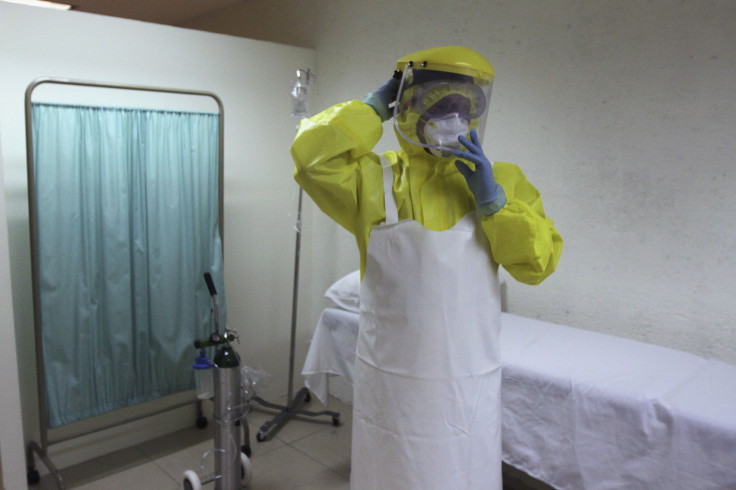85% Of US Nurses Lack Ebola Training: Are They Unprepared Or Is There Just No Real Threat?

The Centers for Disease Control and Prevention (CDC) may be prepared to handle Ebola, but 85 percent of American nurses are completely in the dark about what this preparation actually entails. This could mean either one of two things: the threat of Ebola in American hospitals is so small that it’s not necessary to train nurses for it or that U.S. hospitals completely lack resources to handle this type of virus.
Following the diagnosis and subsequent death of Thomas Eric Duncan, the first Ebola patient to be diagnosed on U.S. soil, Americans are more than a bit unnerved about the viral hemorrhagic fever. In August, CDC Director Dr. Tom Frieden, addressed America’s concern on ABC’s This Week, explaining: “It's understandable that with a deadly disease, people are concerned, but the plain truth is that we can stop Ebola. We know how to control it.” Now that Nina Pham, a nurse who treated Duncan, has now also tested positive for the virus, the public is questioning Frieden’s preparedness promise.
To get a better idea of how prepared America really is, National Nurses United surveyed more than 2,000 nurses from 46 states on their knowledge of Ebola. What the survey revealed was quite alarming. According to the press release, 76 percent of those questioned claimed their hospital has not made them personally aware of what should be done in regard to treating Ebola patients; 85 percent said their hospital had not provided any education on Ebola and had not given the nurse an opportunity to ask questions on safety protocol; 37 percent believed their hospital did not have a sufficient amount of protective gear; and 39 percent said their hospital was lacking fully equipped isolation rooms.
The organization believes that the survey stands as evidence to the gaps in communication and shortages of equipment across the hospital and hopes changes will be made. “Nurses and other frontline hospital personnel must have the highest level of protective equipment,” RoseAnn DeMoro, executive director of the National Nurses United, explained in the press release. “The time to act is long overdue.”
While the figures presented by the nursing union are unsettling, they may be suggestive of a much more reassuring reality: Ebola poses a nearly insignificant threat, to America at least. According to ABC News, as many as two-thirds of Americans are concerned about a widespread epidemic of the Ebola virus in the United States, and 43 percent believe that an immediate family member may catch the virus.
Still, the World Health Organization revealed that of the more than 4,033 Ebola-related deaths in this outbreak, only one has been in America. Based on the number of viral deaths this year, Forbes reported that enterovirus D68 and the flu should be a bigger concern than Ebola.
Published by Medicaldaily.com



























